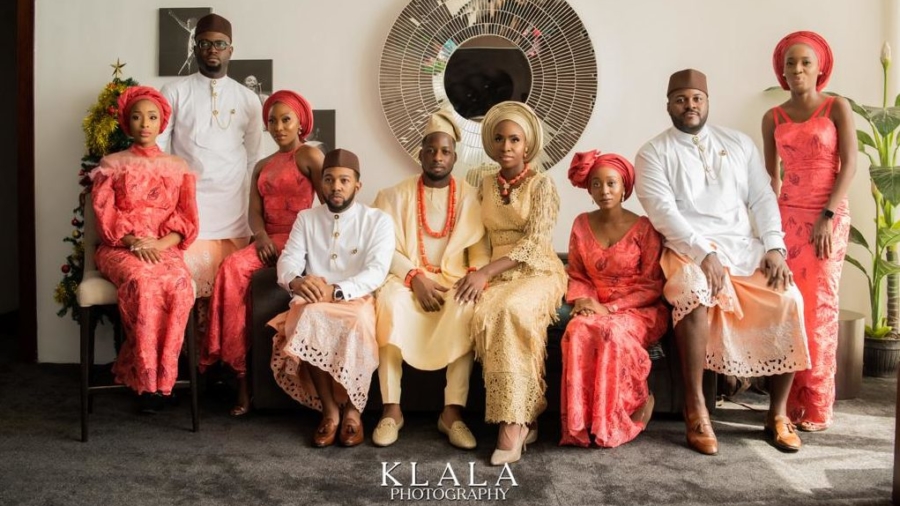I’ve never been an avid comic book reader. I’ve never participated in cosplay. I’ve never felt a strong sense of Afrocentrism. Nevertheless, although feeling a little sheepish, I found myself in a dashiki joined by three close friends bubbling with excitement to see Black Panther on opening night during “Black History Month.” Similar to how I felt when I bused down to Washington D.C. to witness Barack Obama’s inauguration in 2009, I knew that I wanted to be a part of this monumental moment in cinematic history. Although this was more than just cinematic history, this was history.
I walked into the movie theatre in downtown Brooklyn and immediately saw a group of ladies wearing heels and African print dresses. The theatre was buzzing and it was at that moment where I realized that the excitement that I had read about on the internet was not only palpable but I was apart of the experience as well. I’ve probably seen hundreds of movies in the theatre but I had never experienced this level of excitement within the black community since Obama’s inauguration. Strangers were dapping each other, positively affirming each other’s clothing, staging photoshoots in front of the film’s poster, and for the first time ever there was an anti-bootlegging movement. In other theatres, they began the film by singing the Black National Anthem, Lift Every Voice and Sing.
Over the last ten years, our community has witnessed videos of fatal violence against black bodies in American streets. We’ve seen the bodies of Mike Brown, Eric Garner, Walter Scott, Tamir Rice, Alton Sterling, Philando Castile, and Terrence Crutcher – to name a few – all lifeless in American streets. Something that I must painfully and dangerously admit that our culture has become desensitized to. If you’re like me and you view cinema as an escape from reality, then you know that most Black actors have largely not been portrayed in positions of prestige. Hollywood seems to only cast and awards us for subjugated roles as slaves, gangsters, and maids which only seem to reiterate false narratives of my community. We have and will always be more than the images in which Hollywood portrays us.
Even though I had always been a huge fan of past superhero movies The Meteor Man, Blankman, and Blade as a kid, I knew the importance of seeing a big budget superhero film written, directed, and staring black artists. Seeing the images of people that look like you as superheroes is critically important for the subconscious of little boys and girls. After all, the first time I ever dressed up for Halloween at 24-years-old was as Green Lantern.
In 1975, a relatively unknown 27-year-old Director directed a movie that became a blockbuster hit. Jaws launched the now iconic and wildly lucrative career for famed Director, Steven Spielberg. My hope is that after also directing Fruitvale Station and Creed that this is the road that lies ahead for Black Panther Director Ryan Coogler’s career.
That said, I have always been skeptical of anything that has hype surrounding it. So I won’t lie, I was skeptical of actually how good the storyline of this film would be. Less than an hour into this film, I knew that this was on the way to being my favorite movie ever. Not kidding, Hitch has been my favorite movie for over a decade and I remember seeing that film in theatres too. For those that know me well, know that this is a big deal. A positive black film that portrays African and American black people displaying power, love, happiness, fatherhood, national pride, loyalty, intellect, innovators of technology, a dope dap and a tribal monarchy that is founded on physical strength delighted my soul and aligned with who I am. In a lot of ways, that narrative is what the Soulful Silverback blog is all about. So you could imagine that I almost leaped out of my seat when I saw M’Baku, leader of the Jabari Tribe, on screen!
After the excitement and love of the post-film photoshoot subsided, I left the film saddened that the streets of Brooklyn weren’t the streets of Wakanda. I was even more saddened that as a result of colonization, revisionist history, the genocide of the slave trade, and corruption – Wakanda was just a figment of Stan Lee’s imagination and not a real place. My mind began to soar with the idea that what if Wakanda could have been real? What if Erik Killmonger’s idea of black liberation came true and the continent of Africa united to become a military and economic world power? What if our African brothers and sisters had come to rescue us? What if those of us across the diaspora all across the Americas engaged in the healing process with our dear African brothers and sisters to restore the years that the locusts have eaten to make the dream of Wakanda a reality? What if…?.What if…? What if…? ..but until our liberation is a reality then Wakanda Forever!
This article was originally published on 1 March 2018.
Similar Read(s): LCR Perspectives on Black Panther


